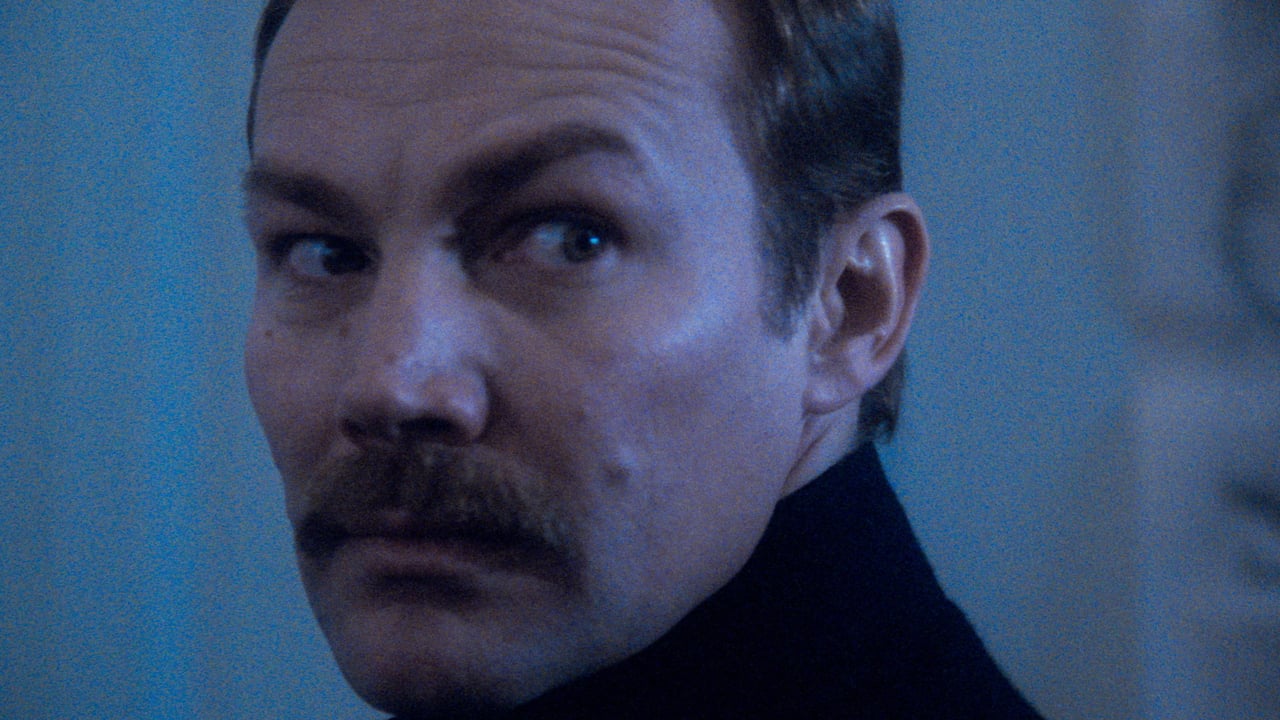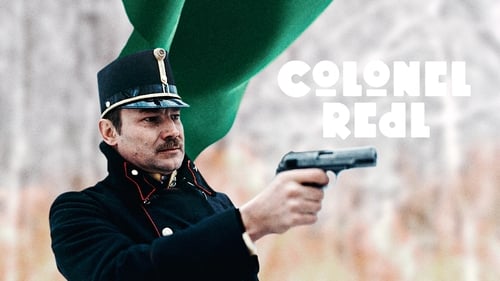




People are voting emotionally.
While it doesn't offer any answers, it both thrills and makes you think.
View MoreAmazing worth wacthing. So good. Biased but well made with many good points.
View MoreThere is, somehow, an interesting story here, as well as some good acting. There are also some good scenes
View More"Oberst Redl" or "Colonel Redl" is an Oscar-nominated movie from 1985, so this one already had its 30th anniversary last year. It is a collaboration by four European countries and the language spoken in here is German. This is a bit surprising as Hungary (one of the four countries) submitted it to the Academy Awards were it got in, but lost to the Argentinian entry eventually, just like at the Golden Globes. A BAFTA win isn't too shabby either though. The reason why it got in for Hungary is probably writer and director István Szabó, one of the most-respected European filmmakers at this time. He also directed the Oscar-winning "Mephisto" 4 years earlier, another collaboration with actor Klaus Maria Brandauer. Brandauer, an Austrian-born actor, like Szabó was among the finest Europe had to offer back then and he was also a success at Hollywood.But sadly, I cannot really share the praise all these awards bodies had for "Oberst Redl". This may, however, also have to do with the time in which this film plays, a historic era that I personally never had the biggest interest in. This film easily makes it past the 2-hour mark and if you don't manage to appreciate it quickly, it will drag on several occasions. I would not say that the actors are to blame here. Armin Mueller-Stahl and Landgrebe are still somewhat known in Germany today, but I am mostly referring to lead actor Brandauer with this statement. I am sure this movie would have been considerably worse without him as he is pretty convincing like always and this is definitely one of his career defining roles. I think you can say that now that he in his 70s. The ending especially was one brilliant moment of acting for Brandauer. I will not go into detail about the exact scene, but you will definitely know what I mean when I say it's difficult to find a better portrayal of involuntary closure. Certainly a contender for best film scene of the entire year and Brandauer brings his A-game there. But it is still not worth to set through everything else before that in this period piece. I wish Szabó would have kept it at least 35 minutes (preferrably more) shorter and would have included much more focus and better, more interesting character development aside from the title character. This way there is really no reason to see it other than Brandauer. I do not recommend the watch. Thumbs down.
View MoreUnlike most people who know both films (there aren't many!), I've always preferred this 1985 film to Klaus Maria Brandauer's - and director István Szabó's Oscar winning 'Mephisto', from 1981.'Mephisto' won an Oscar, for Foreign language film and as such, István Szabó remains Hungary's only ever Academy Award recipient. The two films have similarities, with Brandauer giving superbly nuanced yet powerful performances and both as high ranking Military Officers, German in Mephisto and Austro-Hungarian in this.Colonel Redl is a made up character that is drawn from historical records and the story that ensues is based on John Osborne's play 'A Patriot for Me' and we follow Redl as boy, all the way through to his high-ranking officer just before the onset of the Great War. It's a compelling study of the decaying Empire that so dominated turn-of-the- century Europe and the bubbling resentments and labelling of ethnic groups within that start to make us feel us uncomfortable as the recognisable Monster that was to become becomes apparent.It is Brandauer's calm and chilly persona that is both compelling and slightly disturbing. In Mephisto, in comparison, he is far more dramatic, even over-the-top, though the critics might say otherwise. As Redl coolly bulldozes his way through the ranks, craftily getting on the right side of everyone he needs to, his feelings toward a younger officer let slip and after the affair, his decimation from power is calculatingly abrupt and shocking, revealing a paranoid State.There is excellent support from Armin Mueller-Stahl, recognisable from many English speaking films, usually as a German SS officer, as the doomed but supremely powerful and influential Archduke Franz Ferdinand.The period detail is perfect as is the cinematography, looking radiantly splendid in the great halls and ballrooms, beautifully evocative in the snowy wastelands and suitably grim in the film's darker moments.As I said, Colonel Redl certainly deserves to be as known as Mephisto - and of course, both far more than just specialist films for Art House lovers, that they seem to be casually categorised as.My DVD was a Korean release that, once the subtitles were changed to English (from the default Korean) played like just like a 'normal' one.
View More"Colonel Redl" is based on a famous scandal that took place in the last years of the Austro-Hungarian empire, and its greatest strength is in how it evokes the masculine militarism of the era. It follows the life of Alfred Redl (Klaus Maria Brandauer), who rose from humble origins to become a spymaster for Crown Prince Franz Ferdinand, but struggled to repress his homosexuality and eventually betrayed his country.The movie makes Redl less treasonous than he seems to have been in reality, and Brandauer's performance keeps him sympathetic, too. We see how Redl's extreme loyalty to the army destroys his humanity and fills him with self-loathing; thus, when he finally stops lying to himself, it comes as a relief (even though this now means that he is lying to everybody else)."Colonel Redl" is probably too long (2 hours 20 minutes) for the story it wants to tell, and yet it still sometimes glosses over its characters' motivations. For instance, Redl claims he has no interest in marrying, then the very next scene depicts his wedding; and his wife never gets sufficiently characterized. Sometimes the scene transitions are subtly clever; other times they are abrupt and choppy."Colonel Redl" is thus neither accurate history nor fully engaging drama, but it is a good portrait of the declining Austro-Hungarian empire. It shows many of the factors that led to World War I: pervasive ethnic tensions, the belief that war was necessary and proper, and a military command more concerned with preserving archaic ideals than with investigating actual, pressing threats. In the end, they paid for this, when discontented Serbians assassinated Franz Ferdinand and started World War I--the war that caused the world of "Colonel Redl" to disappear for good.
View More"Colonel Redl" (German, 1984): Starring Klaus Marie Brandauer, directed by Istvan Szabo. This is the second film of a trilogy. (The first, "Mephisto", the third, "Hanussen" I do not own, but will try to find for rental.) Here we are in Germany again, but before WWI. A young man decides that the only way to raise himself from his peasant roots is to enter the aristocratic military world and is willing to do anything to get in, stay in, and advance in. This he does, but there's always The Price. He slowly loses those things and people which held any meaning or joy for him. He finds himself an amateur in a world that is completely Darwinian, and long-practiced in the art of manipulation. Like "Mephisto", the ladder climber seems to reach spectacular heights, only to be tossed down when it most serves those who were never out of control. These films of Szabo start light, start fluffy, and slowly change into foreboding, evil, hopeless stories with NO optimism towards the human spirit, organized groups of humans, or Time being a teacher. They are very insightful essays on these subjects.
View More